Search Our Whole site:
Just Search: Nigeria
Salvaging Waste to Protect Lives in Nigeria During COVID-19
While considering ways to respond to a global pandemic, collecting trash might not seem like the most obvious path. Victor Boyle-Komolafe, co-founder of Garbage In, Value Out (GIVO) saw the opportunity to turn items that have been thrown away into vital personal protective equipment (PPE). The efforts are not only countering the health challenges of COVID-19 but also investing in local talent and the circular economy. Nigeria began its response to COVID-19 early, becoming the first country in Sub-Saharan Africa to confirm a case of the disease. Despite this dubious honour, in comparison with other countries on the continent, it has witnessed fewer cases. This began to change at the end of last year when the nation saw a new variant of the novel coronavirus and experienced a second wave of infections which led to further travel restrictions and a negative impact on the economy.
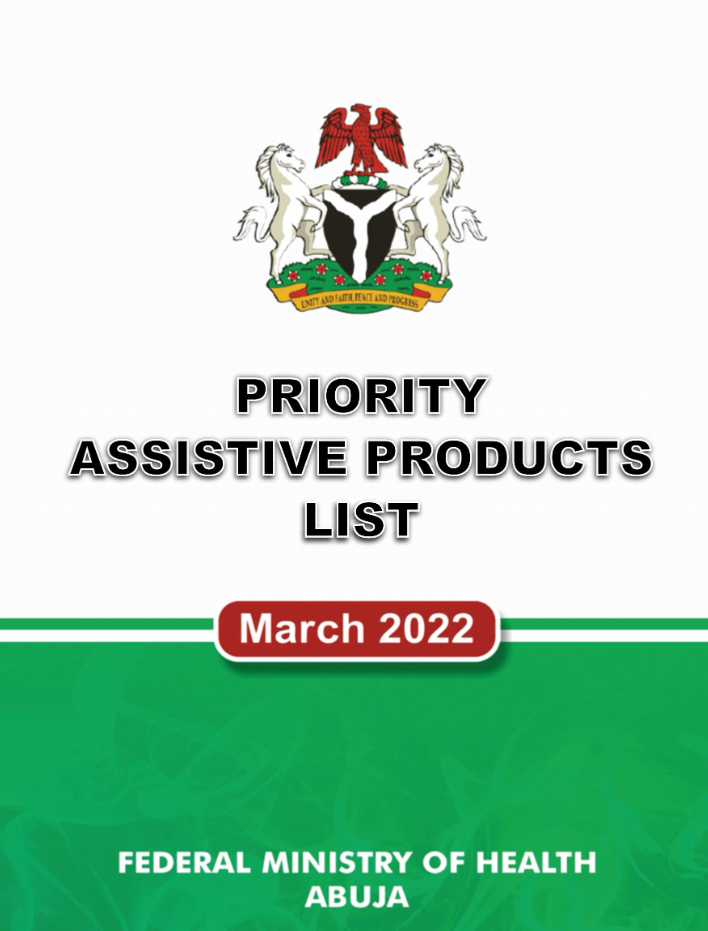
Nigeria: Priority Assistive Products List
The outcome of extensive deliberations and consultations by various stakeholders in the assistive technology sector in Nigeria, this document is designed to set in motion the catalytic change required in the assistive technology sector to improve access to assistive devices and fulfill the vital needs of the 25 million persons with disabilities who live in Nigeria.
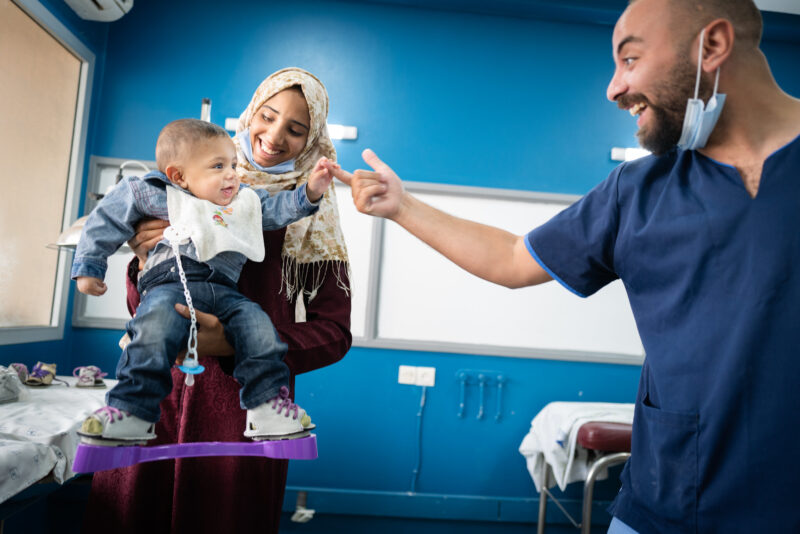
MiracleFeet: The human impact of foot braces in Nigeria and Liberia
The Assistive Technology Impact Fund (ATIF), part of the AT2030 programme, has committed investment to support the company MiracleFeet, who provide clubfoot treatment to children in LMICs. To better understand and evidence the impact of MiracleFeet's work for children living with clubfoot, ATIF commissioned 60 Decibels to conduct research using specifically designed tools that could measure the impact of assistive technology. The results are shared in this insightful report, including findings from 200 parents and guardians of Nigerian and Liberian children who have undergone treatment using the MiracleFeet brace.
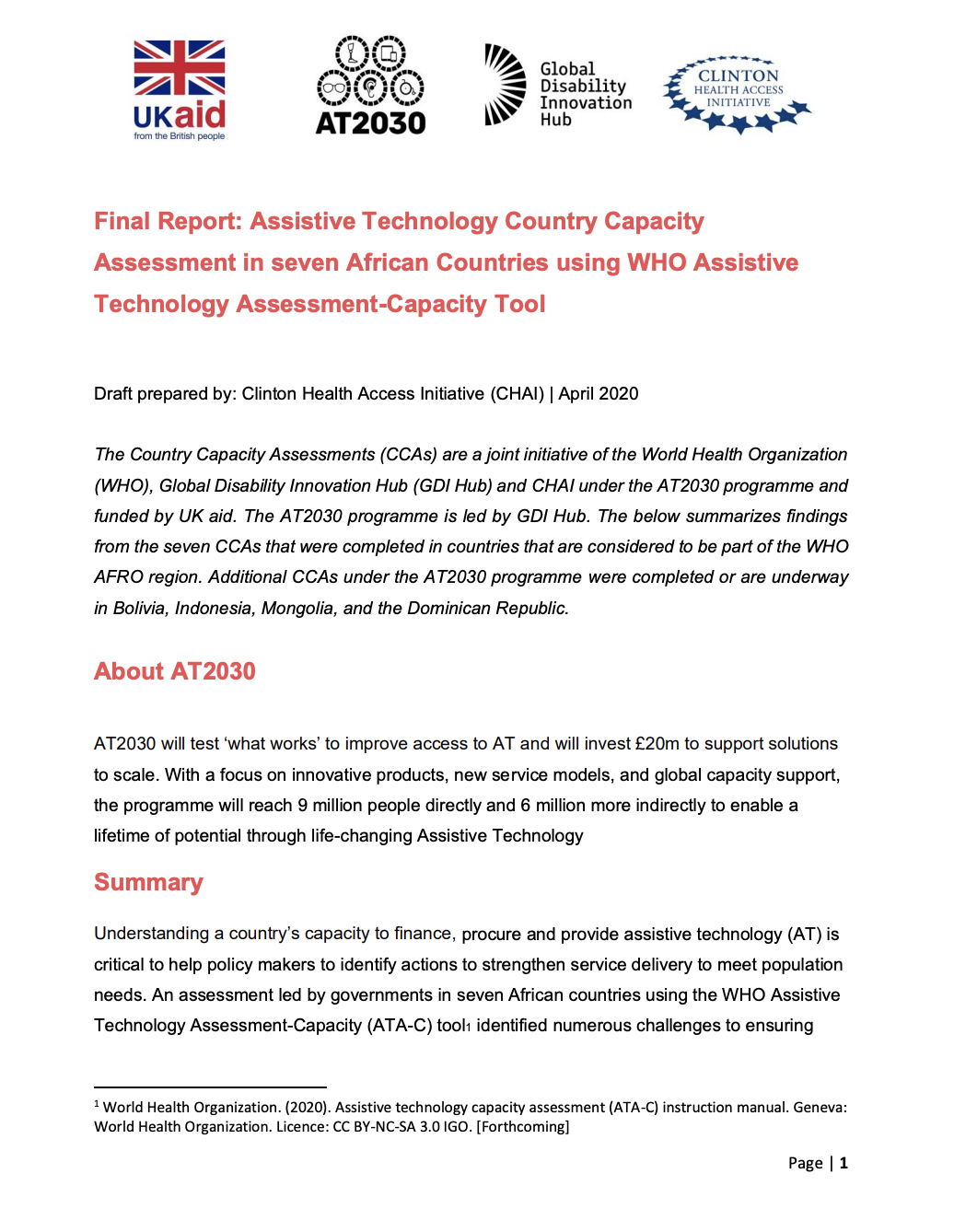
Final Report: Assistive Technology Country Capacity Assessment in seven African Countries using WHO Assistive Technology Assessment-Capacity Tool
Draft prepared by Clinton Health Access Initiative (CHAI)
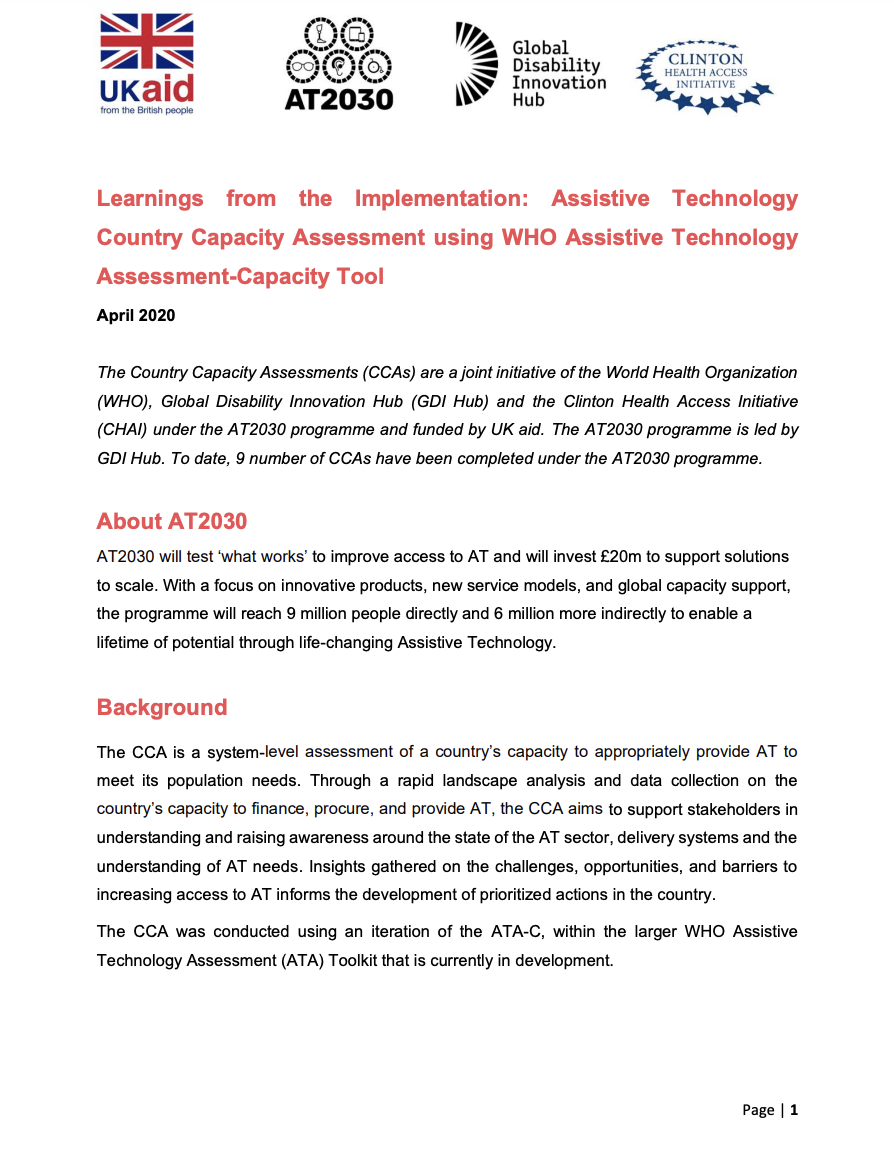
Learnings from the Implementation: Assistive Technology Country Capacity Assessment using WHO Assistive Technology Assessment-Capacity Tool
This draft was prepared by the Clinton Health Access Initiative (CHAI)
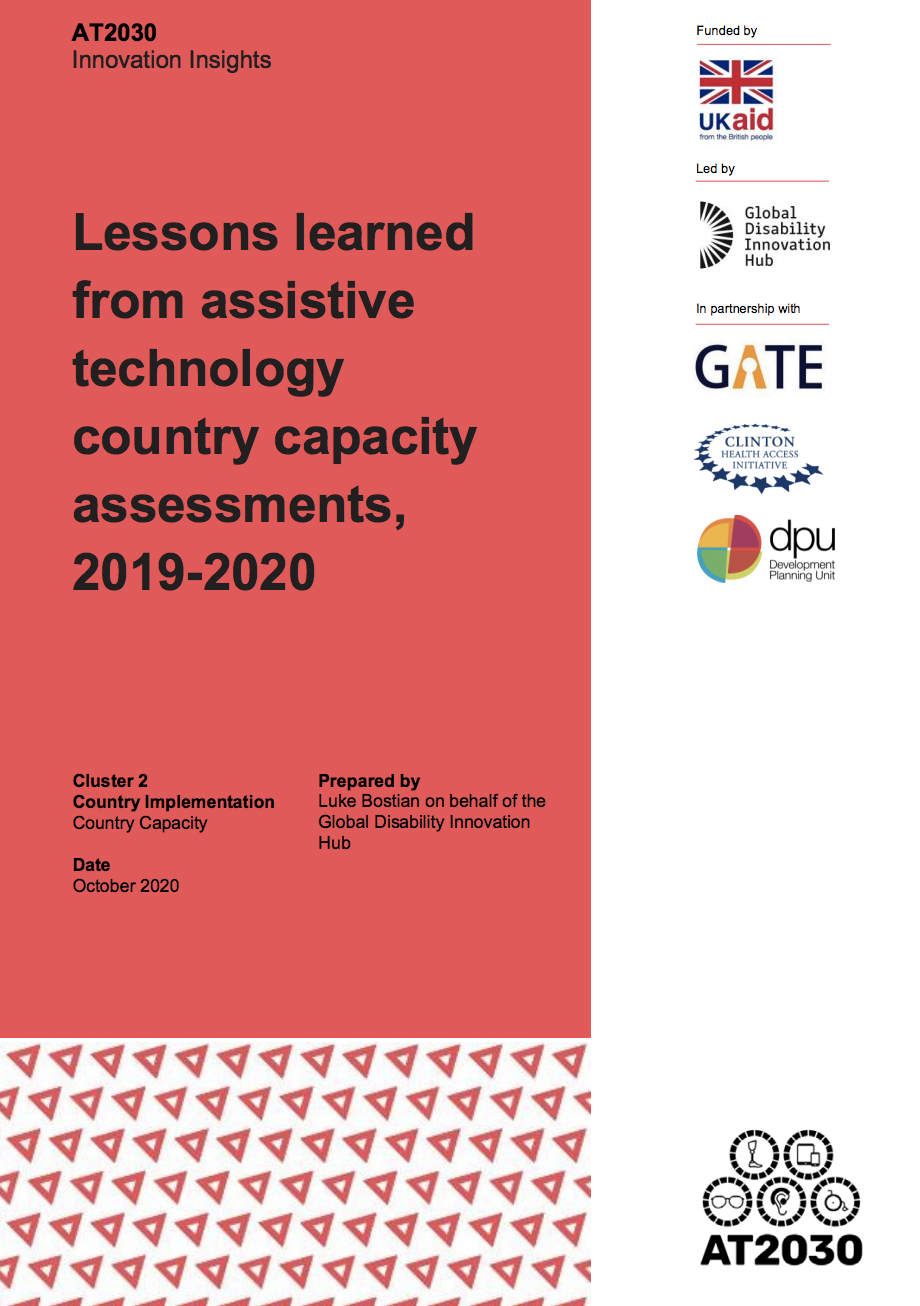
Lessons learned from assistive technology country capacity assessments 2019/2020
The purpose of the CCAs is to “capture a high-level understanding of the often-fragmented AT sector in a country or region,” helping raise awareness about AT gaps and opportunities and contributing to advocacy and policy and program development. One year after the first CCAs began, GDI Hub commissioned research into lessons learned so far and recommendations for how the tool and process might be improved in the future.